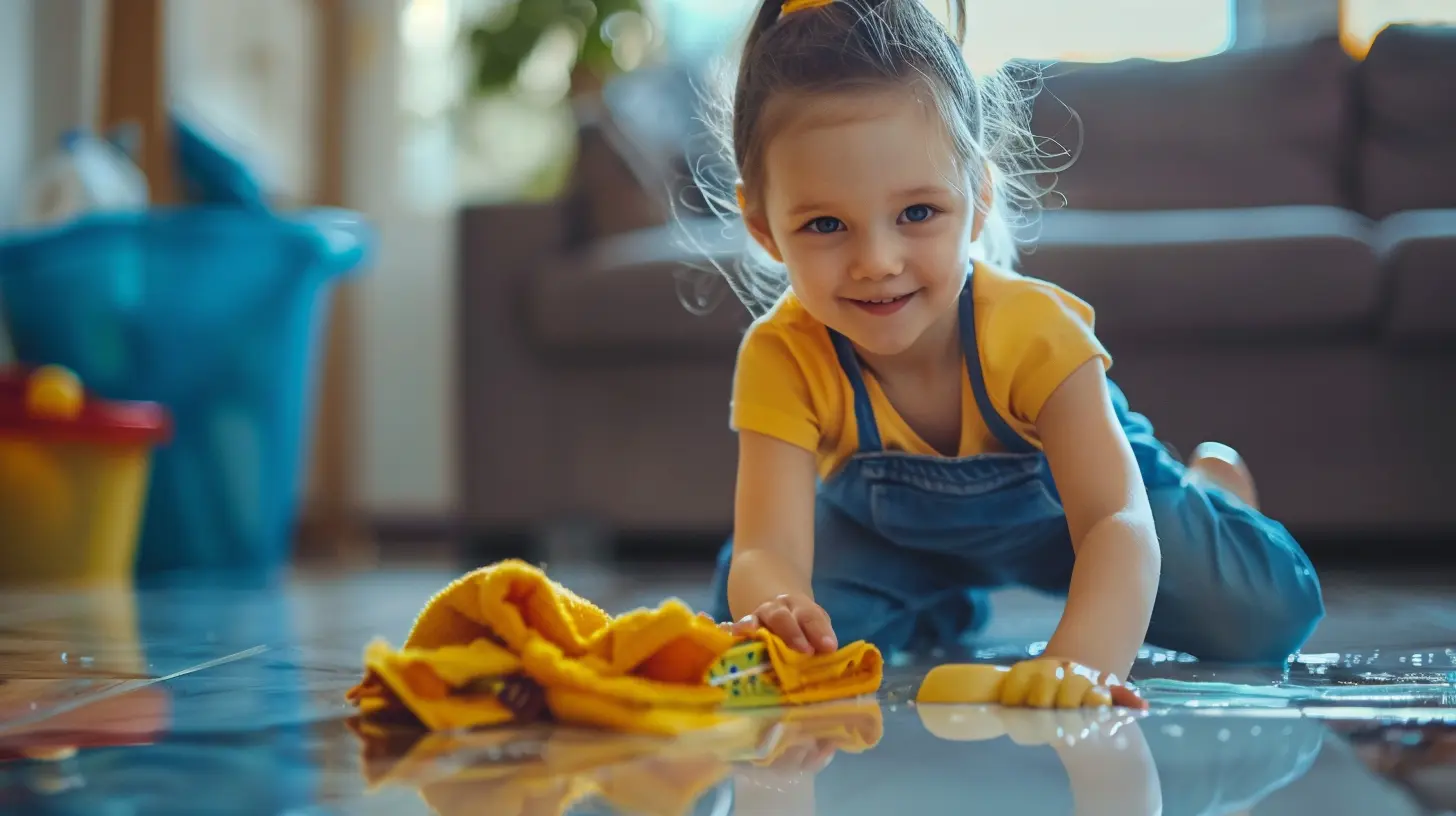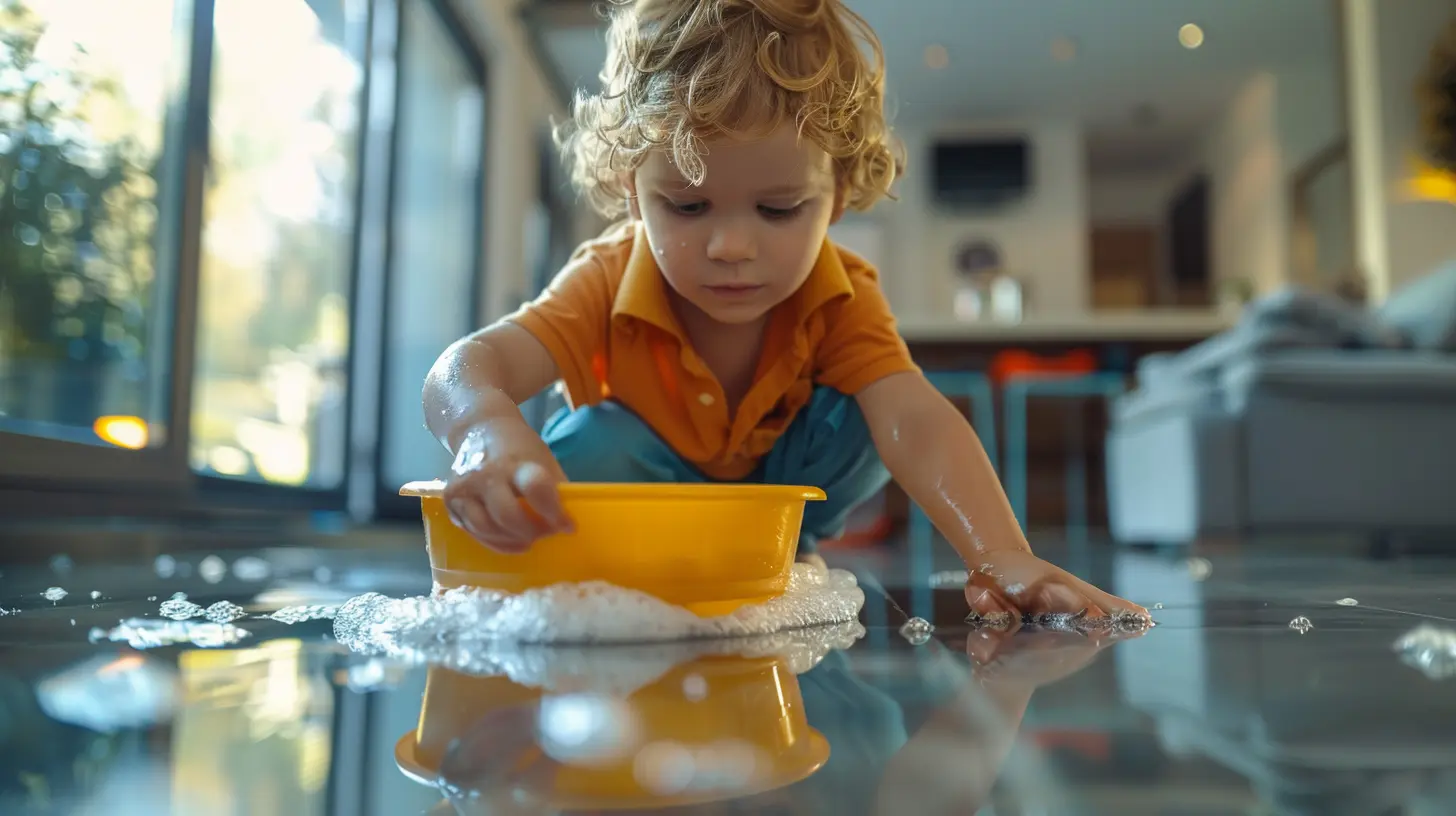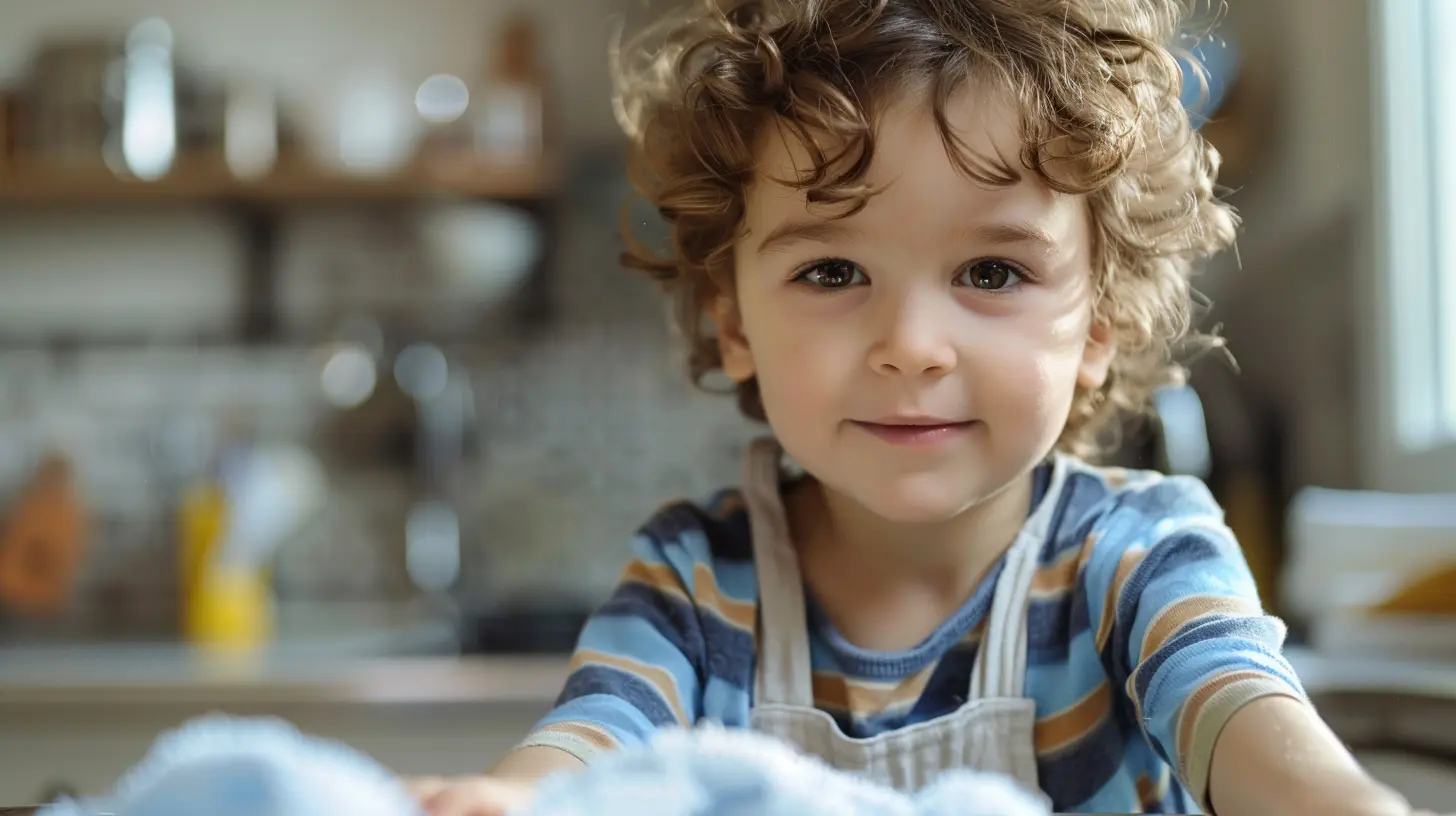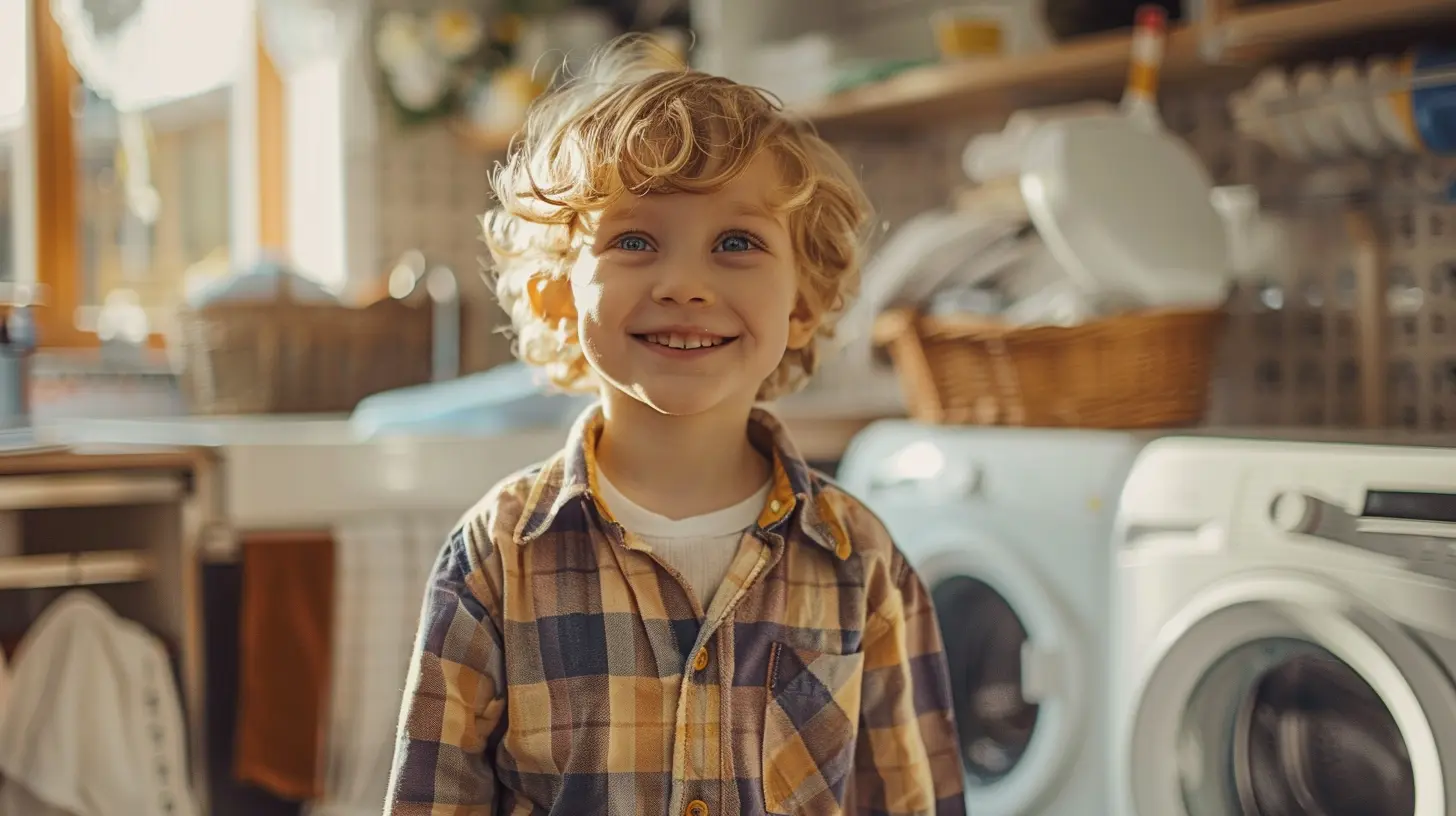27 February 2025
As parents, one of our biggest goals is to raise well-rounded, responsible kids who can handle the ups and downs of life. Right? But how do we get there? Do we just wake up one day and expect our kids to miraculously know how to take care of themselves? Spoiler alert: It doesn’t work like that.
One powerful and practical way to teach responsibility is through – you guessed it – daily chores. Yep, those small, seemingly boring tasks like tidying up toys, folding laundry, or helping with dishes can make a world of difference in shaping a child’s character. Chores might not sound like the secret sauce to raising responsible children, but trust me, they are.
So, let’s dive into the nitty-gritty of why chores matter, how to introduce them, and, most importantly, how to make this whole process less of a battle for everyone involved.
Why Chores Matter in Teaching Responsibility
Building Lifelong Skills
Think about it: life is full of responsibilities. From paying bills to cleaning up after yourself, adulthood comes with a never-ending list of to-dos. By assigning chores early on, you’re giving your child the tools they’ll need to navigate the real world. They’ll learn things like time management, discipline, and accountability—skills every adult needs to thrive.Plus, chores help kids develop independence. When they know how to load the dishwasher or sweep the floor, they’re less reliant on you. It’s like planting seeds of self-sufficiency. And trust me, you’ll thank yourself later when they’re teenagers and can actually contribute to the household.
Teaching Cause and Effect
Ever stepped on a LEGO because your kid left their toys scattered everywhere? Ouch. By assigning chores, kids start to connect the dots between their actions and the consequences. If they clean up their toys, no one gets hurt (and your feet get a break).This understanding of cause and effect is at the heart of responsibility. It teaches kids that their actions—or lack thereof—have an impact, not just on themselves but on others too.
Boosting Confidence
Here’s the thing: kids love to feel like they’re good at something. When your little one successfully sets the table or helps vacuum the living room, they’re not just completing a task—they're gaining a sense of accomplishment. That small boost in confidence can encourage them to take on more challenges and responsibilities over time.
How to Introduce Daily Chores Without the Drama
Let’s be honest: getting your kids on board with chores can feel like herding cats. But it doesn’t have to be a constant tug-of-war. Here’s how you can set yourself (and your kids) up for success.1. Start Small and Age-Appropriate
You wouldn’t expect a toddler to handle a power drill, would you? Similarly, chores need to be age-appropriate. Younger kids can start with simple tasks like putting toys away or matching socks. Older kids can take on more complex responsibilities like mowing the lawn or cooking a simple meal. The key is to gradually increase the difficulty as they grow.Tip: Use a chore chart! It’s a fun way to visually track their progress and keep things organized.
2. Be Clear About Expectations
“Clean your room” might mean one thing to you and something entirely different to your child. Be specific. If you want their bed made and laundry picked up, say so. Clear expectations eliminate confusion and make it easier for kids to follow through.3. Make It Fun
Nobody likes doing chores—kids or adults. But you can sprinkle a little fun into the mix to make it less of a drag. Play their favorite music while cleaning, turn chores into a race, or create a reward system. Sometimes a little creativity goes a long way.Imagine turning laundry folding into a sock-matching competition? Suddenly, it’s not just work—it’s a game.
4. Be a Role Model
Here’s the truth: kids are watching you more than you think. If you’re constantly avoiding your own responsibilities, why would they take theirs seriously? Show them that chores are just a normal part of life by doing your own tasks without complaint.Think of it as “leading by example.” When they see you taking care of the household, they’re more likely to mimic that behavior.
5. Stay Consistent
This is the tough one. It’s tempting to just do the chore yourself when your child forgets or drags their feet. But resist the urge. Consistency is key in teaching responsibility. If they know you’ll always step in, they’ll have zero motivation to do it themselves.Stick to the plan, even if it means dealing with a little whining. Trust me, it’ll pay off in the long run.
Turning Chores Into Life Lessons
Chores aren’t just about keeping the house tidy—they’re a way to teach life lessons that stick. Here’s how these mundane tasks translate into bigger values.Accountability
When your child knows they’re in charge of feeding the family pet, they’re learning accountability. If they forget, the dog goes hungry (and probably gives them some serious side-eye). This helps them understand the importance of following through with commitments.Teamwork
A family is a team, and households run more smoothly when everyone pitches in. Chores teach kids that it’s not just about their needs—it’s about contributing to a shared goal. They learn to work alongside others and appreciate the effort that goes into maintaining a home.Work Ethic
Life isn’t always fun and games. Sometimes, you’ve just got to roll up your sleeves and get stuff done. By doing chores, kids start to develop a solid work ethic. They learn that effort leads to results, a lesson that’ll serve them well in school, sports, and eventually, their careers.
Overcoming Common Chore Challenges
Of course, every family has its struggles when it comes to chores. Here are a few common roadblocks and how to tackle them.“My Kid Won’t Do Their Chores”
First, check your approach. Are you asking or demanding? Are you consistent, or do you let things slide sometimes? If motivation is an issue, consider adding small incentives—like extra screen time or a favorite dessert—for completing their tasks.“It’s Easier If I Just Do It Myself”
Yes, in the short term, it’s faster for you to do the job. But this isn’t just about getting the house clean—it’s about teaching life skills. Be patient and let your kids learn, even if it means the towels aren’t folded perfectly.“They Complain Every Time”
Welcome to parenting! Complaining is par for the course. The trick is to stay firm and not give in. Explain why chores are important, but don’t let their grumbling derail the plan. Over time, they’ll get used to the routine.Wrapping It Up
Chores might feel like a small thing, but they’re a big deal when it comes to teaching responsibility. They give kids the tools to be independent, accountable, and hardworking—all while making your life a little easier in the process. It’s a win-win, really.So, start small, stay consistent, and remember—you’re not just assigning tasks; you’re building character. Sure, there might be a few groans and eye-rolls along the way, but the payoff is well worth it. Your future self (and your kids) will thank you.








Chloe McClary
This article effectively underscores the importance of integrating daily chores into children's routines to foster responsibility. By assigning age-appropriate tasks, parents not only teach essential life skills but also instill a sense of accountability, promoting independence and self-discipline in their children.
April 4, 2025 at 4:06 AM